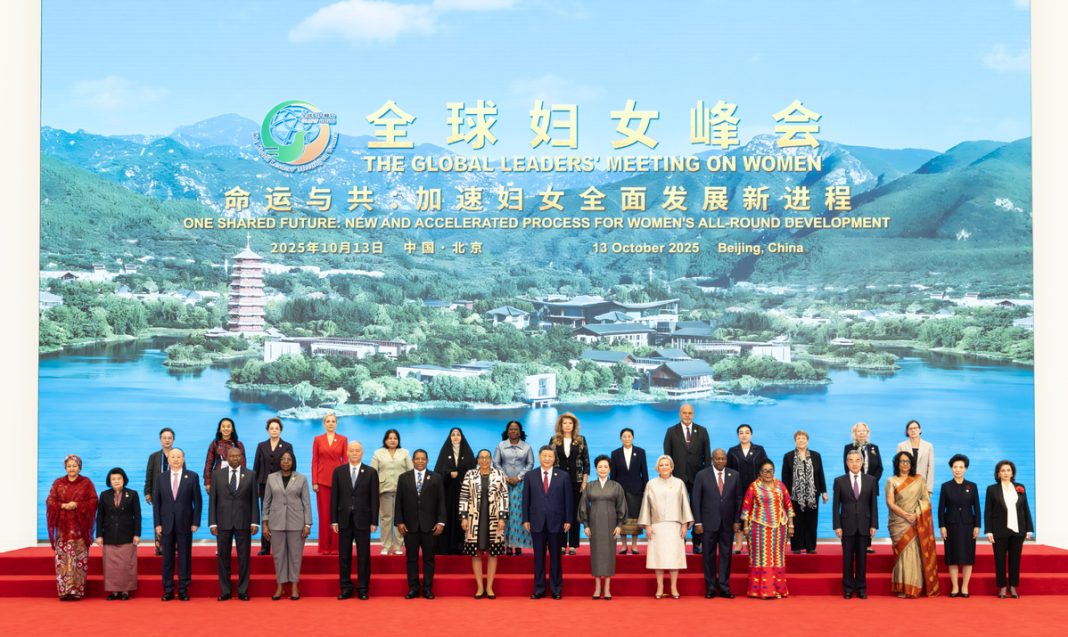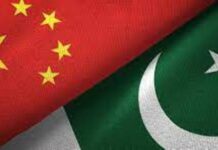
BEIJING: Chinese President Xi Jinping on Monday underscored the international community’s shared responsibility and called for more practical actions to promote women’s advancement.
Xi hailed women for “playing an important role in creating, promoting and carrying forward human civilization” while addressing the opening of a high-profile meeting on women affairs held in Beijing.
The Global Leaders’ Meeting on Women was convened to commemorate the 30th anniversary of the Fourth World Conference on Women held in the Chinese capital.
Seen as a landmark event for global women’s cause, the 1995 conference adopted the Beijing Declaration and Platform for Action, which served as guiding documents for global women development and gender equality.
Guided by the spirit of the conference, equality between men and women has become a universal consensus of the international community and has been incorporated into UN development agenda and priority development targets.
A total of 189 countries have ratified the Convention on the Elimination of All Forms of Discrimination against Women, and nearly 1,600 laws on women’s rights and interests have been enacted by more than 190 countries. More and more countries have made national action plans to improve women’s well-being.
Yet Xi highlighted the “complex challenges” still hampering women’s all-round development today.
Over 600 million women and girls around the world are still mired in war and conflict, and around 10 percent of women and girls are trapped in extreme poverty, he said, adding that deep-rooted problems such as violence and discrimination still persist, and the gender digital divide is widening.
“Equality between men and women remains a lofty yet arduous task,” said the Chinese president.
The two-day meeting is expected to urge all parties to accelerate the implementation of the Beijing Declaration and Platform for Action, and inject new momentum into the promotion of global gender equality and the all-round development of women.
The 2025 Beijing meeting is “not only a commemoration of the past, but also a strategic opportunity to shape the future,” said Dilma Rousseff, president of the New Development Bank.
“My expectation is that this summit will not be a ceremonial event, but a catalytic moment — one that reaffirms past commitments and sets new, concrete priorities for the next generation,” Rousseff told Xinhua.
As the world faces economic uncertainty, climate crises, conflicts and deepening inequality, recommitting to gender equality is critical for building a just and sustainable future, said Irina Bokova, former UNESCO director-general.
In his address, Xi put forward four proposals to accelerate the process of women’s all-round development, in a bid to build a wider consensus, open up broader pathways and take more practical actions for this cause. –Agencies



